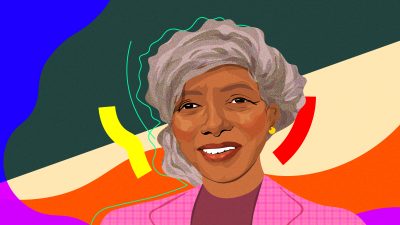People
Leaving My Near-Death Experience on the Dance Floor
They said I was traumatized, and that my fragile mental state would have to indefinitely play catchup with my rapidly healing body.
The Civil Rights Activist Whose Unique Spirituality Helped Me Find My Own
After I left my family’s religion, I was, for better or worse, searching for a blueprint, a model I could trust, which felt familiar enough to be safe, yet bold enough to be revolutionary.
How Bodywork Helped Me Find Healing From Trauma
Though I couldn’t articulate it at the time, I somehow knew that both relief and release were no longer optional. They were necessities.
A Family on the Border, of the Border
I see a wall as tantamount to rejection: to create a physical barrier is to reject the possibility of familiarity.
“What Are You?”: On Mixed-Race Identity and ‘The Buddhist Bug’
Yet, my same racial mutability also poses a threat: “How can you identify a ‘them’ if it can pass for an ‘us’?”
How Being a Child Elvis Impersonator Helped Me Find My Non-Binary Self
Each performance provided a hit of adrenal love. I lived on it. I survived off of it. Until, that is, that moment in the bathroom when I was thirteen.
What Tarot Taught Me About the Stories We Tell
I’ve read that trauma disrupts time. That violent events are recorded differently in the brain.
Car Crashes, Climate Change, and Mothering Through Catastrophe
I recall a 2016 headline that warned, ‘Orangutans face complete extinction within ten years.’ Nash will be thirteen in 2026.
Treating My Diabetes Meant Facing My Eating Disorder All Over Again
I posed the question to her, earnestly, seriously: If given the choice, would she rather gain weight or would she rather die?
My Family’s Relationship with the Unseen
Maybe my dreams were trying to tell me something. Maybe I had what I liked to call, jokingly, “the ElGenaidi Gift.”










